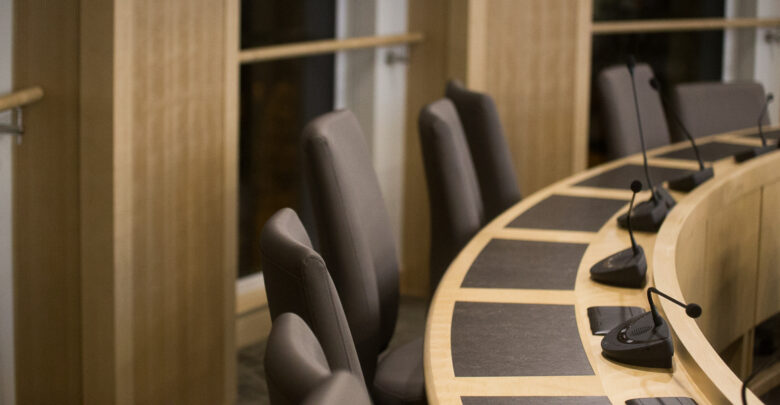Notes from Council: The fate of mandatory non-instructional fees and changes to the DIE board
Council now has the power to vote on mandatory non-instructional fees
 Rosty Soroka
Rosty Soroka“Notes from Council” is The Gateway’s ongoing series of recaps of noteworthy items from Students’ Council meetings.
Students’ Council now has influence over mandatory non-instructional fees
Students’ Council will now have a greater say over what mandatory non-instructional fees are passed.
Mandatory non-instructional fees (MNIFs), like the Athletics and Recreation Fee or U-Pass, are fees additional to tuition. Some fees are opt-outable, such as the Students’ Union Health and Dental plan, while other MNIFs are not.
With this amendment which passed unanimously, Students’ Council now has the right to vote to support or reject all new MNIF fee proposals. It also allows Students’ Council to vote against any increases to pre-existing MNIFs that go beyond the beyond Alberta Consumer Price Index.
This change, however, does not allow Students’ Council to vote to eliminate already existing MNIFs.
“Having this reflected in our bylaws… we can now go and use our power that we have been given to help students,” arts councillor David Draper said.
This amendment directly stems from Bill 19, which alongside keeping tuition raises consistent with consumer price index, also required post-secondary institutions to establish a process that allows Students’ Council to have input over MNIFs.
DIE Board gets a bigger role
At Student’s Council on September 24, council voted unanimously to amend bylaw 1500, which concerns the operations of the Discipline, Interpretation, and Enforcement (DIE) board.
Previous to this decision, the DIE board primarily oversaw and resolved disputes concerning the Students’ Unions legislation.
With this amendment, the DIE board is now able to provide an opinion on cases without it needing to be brought to the board as a formal dispute.




